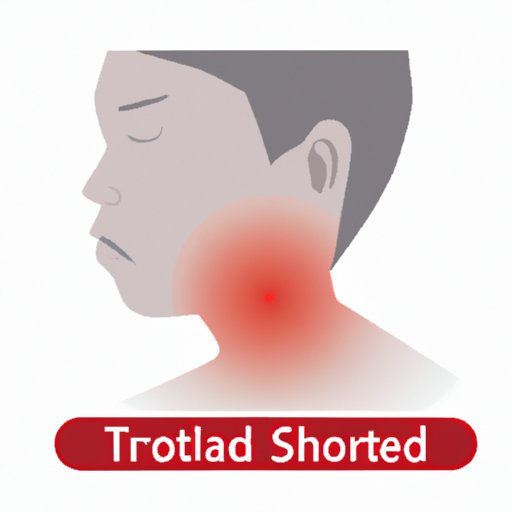
Introduction
Strep throat is a bacterial infection known for causing a sore throat, fever, and swollen glands in the neck. For many people who have had their tonsils removed, the assumption may be that they are no longer at risk of getting strep throat. However, this is a common misconception, and we will explore the facts in this article. According to the American Academy of Otolaryngology-Head and Neck Surgery, about 500,000 tonsillectomies are performed annually in the United States alone. In this article, we’ll explore the myths and realities of strep throat and tonsillectomy, how to prevent strep throat after tonsillectomy, and much more.
Life after Tonsillectomy: Can You Still Get Strep Throat?
Even after tonsillectomy, individuals remain susceptible to strep throat, as it can affect the throat and tonsil area beyond the tonsils. While tonsils act as a first line of defense against infections, removing them does not completely eliminate the possibility of getting strep throat. However, proper self-care, such as limiting exposure to germs, hand-washing, and avoiding close contact with people who are sick, can help reduce the risk of getting strep throat after tonsillectomy.
Is It Possible to Have Strep Throat Without Tonsils?
It is not uncommon for individuals who have had their tonsils removed to wonder if they can still get strep throat. The answer to this is yes. However, the symptoms and risks of strep throat may be different for individuals who have had their tonsils removed. Symptoms of strep throat without tonsils can include throat pain, fever, and swollen lymph nodes, similar to individuals with tonsils. The risk factors remain the same, and individuals with recent exposure to the bacteria or those with weakened immune systems are more susceptible to getting strep throat.
The Debate on Tonsillectomy and Susceptibility to Strep Throat
The debate on whether tonsillectomy makes an individual more or less likely to get strep throat remains a contentious issue. While some experts argue that removing the tonsils results in a reduced risk of infections like strep throat, others believe that tonsils are essential in fighting bacteria and viruses in the body. Some studies suggest that children who underwent tonsillectomy had higher rates of upper respiratory tract infections and streptococcal pharyngitis. However, more research is needed to determine whether there is any conclusive evidence linking tonsillectomy and strep throat.
Preventing Strep Throat After Tonsillectomy
Hygiene and self-care are essential to reducing the risk of getting strep throat after tonsillectomy. Here are some steps that individuals can take:
- Wash your hands regularly, especially before eating or drinking
- Avoid close contact with people who are sick
- Avoid sharing glasses, utensils, and other personal items
- Keep your living areas clean and disinfected
- Stay hydrated and avoid smoking and other irritants that can irritate the throat
Surviving Strep Throat Without Tonsils
For individuals who have already had their tonsils removed, understanding how to manage the symptoms of strep throat is essential. Here are some tips to follow:
- Stay hydrated by drinking lots of fluids like water, tea, and soup
- Take analgesics to relieve throat pain, fever, and headaches
- Rest and sleep as much as possible to help the immune system fight the infection
- Gargle with warm salt water several times a day to soothe the throat
- Seek medical attention if symptoms persist or you experience difficulty swallowing or breathing
Can Recurring Strep Throat Lead to Tonsillectomy?
Recurrent strep throat can lead to tonsillectomy if the risk of complications outweighs the benefits of keeping the tonsils. The decision to have tonsillectomy is typically made by a doctor after weighing the frequency and severity of infections, as well as other factors such as sleep apnea and tonsil stones. However, tonsillectomy is not always the solution, as it can pose some risks and complications.
Conclusion
In conclusion, individuals who have had their tonsils removed can still get strep throat. While the link between tonsillectomy and susceptibility to strep throat is debatable, good hygiene, and self-care play a critical role in preventing and managing the infection. Being informed about the symptoms, risks, and prevention methods is the key to staying healthy and avoiding strep throat infection.





